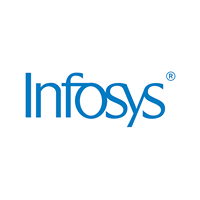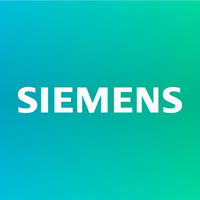The Rise of Agentic AI: Transforming Industries and Empowering Innovation
January 29, 2025, 3:52 pm
In the ever-evolving landscape of technology, a new player is emerging: agentic AI. This sophisticated breed of artificial intelligence is not just a tool; it’s a game-changer. It promises to revolutionize industries, streamline operations, and enhance productivity. As we stand on the brink of this transformation, let’s explore how agentic AI is reshaping the business world and what it means for the future.
Agentic AI operates like a skilled conductor, orchestrating complex tasks with precision. Unlike traditional AI, which often requires explicit instructions, agentic AI can make decisions based on its environment and objectives. This capability allows it to tackle intricate workflows that were once deemed too complex for automation. The implications are vast, spanning sectors from cybersecurity to legal services.
Take the recent launch of the Agent Fund on AngelList. This semi-autonomous venture capital fund is dedicated to nurturing startups focused on AI autonomous agents. With a multi-trillion dollar market potential, the fund aims to identify and support innovative companies pushing the boundaries of what AI can achieve. It’s a bold move, reflecting a growing recognition of the value agentic AI brings to the table.
In the realm of cybersecurity, Conifers.ai is making waves with its CognitiveSOC™ platform. This AI-driven solution enhances security operations by enabling rapid investigations of complex incidents. The results are staggering: up to 87% reduction in investigation time and an 8% increase in accuracy compared to human efforts. In a world where cyber threats are escalating, such advancements are not just beneficial; they are essential.
Similarly, the legal industry is witnessing a transformation with the introduction of LexisNexis Protégé. This personalized AI assistant streamlines legal workflows, allowing professionals to draft documents, summarize cases, and conduct research with unprecedented efficiency. By integrating agentic AI, Protégé empowers legal experts to focus on high-value tasks while automating the mundane. It’s like having a diligent assistant who never tires.
The rise of agentic AI is not without its challenges. A recent report from UiPath highlights that while 90% of IT executives see potential in agentic AI, many face hurdles in implementation. Concerns about security, integration, and data quality loom large. Yet, the appetite for investment is strong, with 77% of executives ready to commit resources to this technology. The desire for improved oversight and automation of complex workflows is driving this trend.
Blaize Holdings is another player poised to lead the charge in the physical AI revolution. By shifting focus from traditional data center processing to edge-based solutions, Blaize is addressing real-world challenges in sectors like healthcare and emergency response. Their innovative Graph Streaming Processor architecture enables real-time data processing, showcasing the tangible benefits of edge AI. This approach not only enhances efficiency but also positions Blaize as a leader in a rapidly growing market.
Meanwhile, Genpact is taking a proactive stance with its AI Gigafactory. This initiative aims to accelerate enterprise-wide AI adoption by creating a pool of over 25,000 AI builders. By combining industry expertise with a robust risk framework, Genpact is addressing the governance challenges that often accompany AI implementation. The Gigafactory is a testament to the belief that scaling AI is not just about technology; it’s about people and processes.
The impact of agentic AI extends beyond individual companies. It fosters collaboration and innovation across industries. WiMi Hologram Cloud is developing AI applications based on the open-source model DeepSeek, aiming to enhance user experiences through intelligent services. This commitment to collaboration reflects a broader trend in the AI landscape, where sharing knowledge and resources can lead to groundbreaking advancements.
As we navigate this new frontier, it’s crucial to recognize the ethical implications of agentic AI. The technology’s ability to operate autonomously raises questions about accountability and transparency. Companies must prioritize responsible AI practices, ensuring that their systems are secure and compliant. This is not just a regulatory requirement; it’s a moral imperative.
In conclusion, agentic AI is more than a technological advancement; it’s a catalyst for change. It empowers businesses to operate more efficiently, enhances decision-making, and drives innovation. As we embrace this new era, the potential for growth and transformation is limitless. The future belongs to those who harness the power of agentic AI, turning challenges into opportunities and dreams into reality. The stage is set, and the performance is just beginning.
Agentic AI operates like a skilled conductor, orchestrating complex tasks with precision. Unlike traditional AI, which often requires explicit instructions, agentic AI can make decisions based on its environment and objectives. This capability allows it to tackle intricate workflows that were once deemed too complex for automation. The implications are vast, spanning sectors from cybersecurity to legal services.
Take the recent launch of the Agent Fund on AngelList. This semi-autonomous venture capital fund is dedicated to nurturing startups focused on AI autonomous agents. With a multi-trillion dollar market potential, the fund aims to identify and support innovative companies pushing the boundaries of what AI can achieve. It’s a bold move, reflecting a growing recognition of the value agentic AI brings to the table.
In the realm of cybersecurity, Conifers.ai is making waves with its CognitiveSOC™ platform. This AI-driven solution enhances security operations by enabling rapid investigations of complex incidents. The results are staggering: up to 87% reduction in investigation time and an 8% increase in accuracy compared to human efforts. In a world where cyber threats are escalating, such advancements are not just beneficial; they are essential.
Similarly, the legal industry is witnessing a transformation with the introduction of LexisNexis Protégé. This personalized AI assistant streamlines legal workflows, allowing professionals to draft documents, summarize cases, and conduct research with unprecedented efficiency. By integrating agentic AI, Protégé empowers legal experts to focus on high-value tasks while automating the mundane. It’s like having a diligent assistant who never tires.
The rise of agentic AI is not without its challenges. A recent report from UiPath highlights that while 90% of IT executives see potential in agentic AI, many face hurdles in implementation. Concerns about security, integration, and data quality loom large. Yet, the appetite for investment is strong, with 77% of executives ready to commit resources to this technology. The desire for improved oversight and automation of complex workflows is driving this trend.
Blaize Holdings is another player poised to lead the charge in the physical AI revolution. By shifting focus from traditional data center processing to edge-based solutions, Blaize is addressing real-world challenges in sectors like healthcare and emergency response. Their innovative Graph Streaming Processor architecture enables real-time data processing, showcasing the tangible benefits of edge AI. This approach not only enhances efficiency but also positions Blaize as a leader in a rapidly growing market.
Meanwhile, Genpact is taking a proactive stance with its AI Gigafactory. This initiative aims to accelerate enterprise-wide AI adoption by creating a pool of over 25,000 AI builders. By combining industry expertise with a robust risk framework, Genpact is addressing the governance challenges that often accompany AI implementation. The Gigafactory is a testament to the belief that scaling AI is not just about technology; it’s about people and processes.
The impact of agentic AI extends beyond individual companies. It fosters collaboration and innovation across industries. WiMi Hologram Cloud is developing AI applications based on the open-source model DeepSeek, aiming to enhance user experiences through intelligent services. This commitment to collaboration reflects a broader trend in the AI landscape, where sharing knowledge and resources can lead to groundbreaking advancements.
As we navigate this new frontier, it’s crucial to recognize the ethical implications of agentic AI. The technology’s ability to operate autonomously raises questions about accountability and transparency. Companies must prioritize responsible AI practices, ensuring that their systems are secure and compliant. This is not just a regulatory requirement; it’s a moral imperative.
In conclusion, agentic AI is more than a technological advancement; it’s a catalyst for change. It empowers businesses to operate more efficiently, enhances decision-making, and drives innovation. As we embrace this new era, the potential for growth and transformation is limitless. The future belongs to those who harness the power of agentic AI, turning challenges into opportunities and dreams into reality. The stage is set, and the performance is just beginning.


